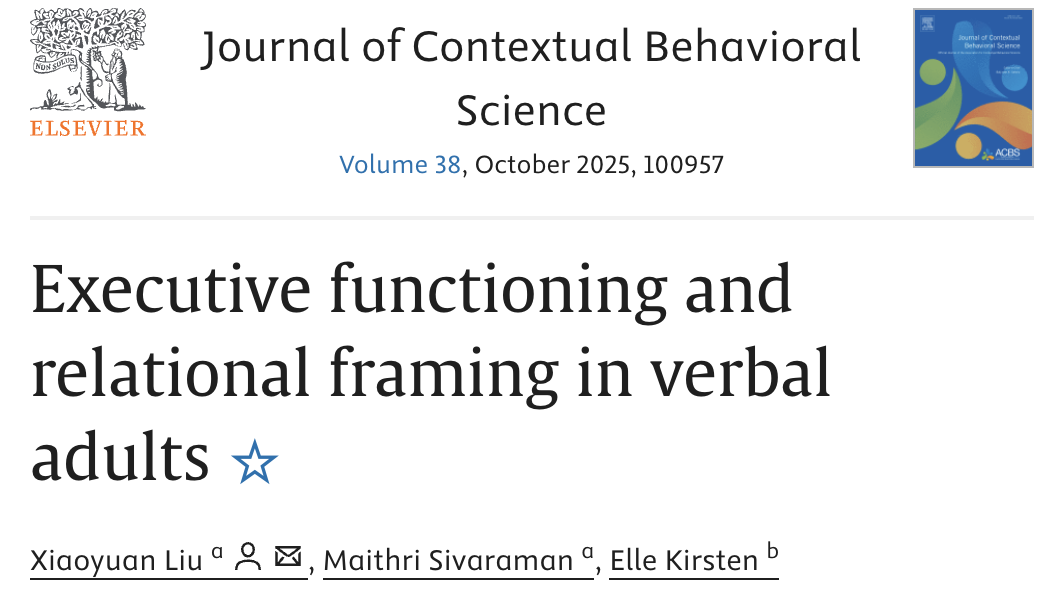Journal of Contextual Behavioral Science (JCBS)
Volume 38, October 2025
Authors
Xiaoyuan Liu, Maithri Sivaraman, & Elle Kirsten
Key Findings
- Executive functioning is one aspect of cognition that facilitates problem-solving.
- No prior studies have assessed the relationship between relational skills and executive functioning.
- We assessed these measures in a sample of 42 verbal adults.
- We found moderate to strong associations between individuals' relational skills and the number of perseverative errors they made during the executive-functioning test.
- We found no correlation between individuals' relational skills and the number of correct responses they made during the executive-functioning test.
Abstract
Relational Frame Theory (RFT) sees the operant acquisition of various patterns of derived relational responding as being key to language and cognition. Executive function (EF) is a concept widely used in cognitive psychology and is said to be critical for problem-solving, self-regulation, and overall success and wellbeing. The current study was a preliminary attempt to study the relationship between a measure of EF and fluency in derived relational responding. Forty-two verbal adults (25 males) participated in the study. All of them undertook a standardized EF test, the Wisconsin Card Sort Test (WCST) and an experimenter-designed arbitrary relational responding assessment. The WCST required participants to match compound stimuli based on unspecified, frequently changing rules. The relational assessment evaluated rate of correct derived relational responding across seven relational frames. The results showed strong negative correlations between perseverative errors on the WCST and the overall rate of correct responses on the relational assessment, but no such correlations between correct responses on the WCST and those on the relational assessment.
